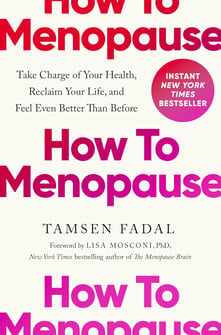Menopause is a significant milestone in a woman's life, marking the end of her reproductive years. Though it is a natural biological process, menopause often brings physical, emotional, and psychological changes that can be challenging if not understood and managed properly. This article delves into the factors influencing menopause, the symptoms and changes observed, how to cope with the transition, and important post-menopausal health and wellness practices. By fostering awareness and preparedness, women can embrace this phase with confidence, comfort, and control.
What Is Menopause?
Menopause is defined as the permanent cessation of menstruation for twelve consecutive months due to the decline in ovarian function and a reduction in the production of reproductive hormones—particularly estrogen and progesterone. It typically occurs between the ages of 45 and 55, with the average age around 51. However, the onset and experience vary significantly across individuals.
Menopause is not a disease or disorder; it’s a natural biological transition. It can, however, be medically induced or occur prematurely due to certain health conditions or surgeries such as hysterectomy or chemotherapy.
Phases of Menopause
Understanding menopause involves breaking it down into three distinct phases:
1. Perimenopause: The transitional period before menopause when hormone levels begin to fluctuate, often starting in a woman’s 40s and lasting several years.
2. Menopause: The point when a woman has not had a menstrual period for 12 consecutive months.
3. Postmenopause: The stage following menopause that continues for the rest of a woman’s life.
Factors Influencing the Onset of Menopause
1. Genetics
Genetics play a crucial role in determining the age at which a woman experiences menopause. If a mother or sister experienced early menopause, it is more likely the same will apply.
2. Lifestyle
Smoking, sedentary habits, chronic stress, and poor diet can accelerate menopause. Smokers typically reach menopause 1–2 years earlier than non-smokers.
3. Medical Conditions
Autoimmune diseases, certain cancers, and surgeries like bilateral oophorectomy (removal of ovaries) can trigger early menopause.
4. Ethnicity and Geography
Some studies suggest that ethnicity might influence the age of menopause, with Asian women tending to experience it slightly earlier and African-American women slightly later than the global average.
Physical and Emotional Changes During Menopause
Menopause affects nearly every system in the body due to declining estrogen levels. Some of the most common changes include:
1. Menstrual Irregularities
Periods may become heavier, lighter, or more irregular before ceasing completely.
2. Hot Flashes and Night Sweats
Sudden warmth, flushing, and sweating, particularly at night, are hallmark symptoms caused by hormonal fluctuations.
3. Vaginal and Urinary Changes
Decreased estrogen leads to vaginal dryness, itching, and discomfort during intercourse. Urinary urgency and infections may also increase.
4. Mood Swings and Depression
Hormonal changes can affect neurotransmitters in the brain, leading to irritability, mood swings, anxiety, and even depression.
5. Sleep Disturbances
Many women report insomnia, difficulty falling asleep, or night waking during menopause.
6. Cognitive Effects
Some may experience memory lapses, difficulty concentrating, or “brain fog.”
7. Physical Changes
Weight gain, especially around the abdomen, thinning hair, dry skin, and reduced breast fullness are common.
How to Cope with Menopause: Practical Strategies
While menopause is inevitable, its symptoms and impact can be managed effectively with the right approach:
1. Hormone Replacement Therapy (HRT)
HRT involves supplementing estrogen and/or progesterone and is highly effective for treating severe hot flashes and vaginal dryness. However, it comes with risks such as increased chances of breast cancer and blood clots. Always consult a healthcare provider for personalized advice.
2. Lifestyle Modifications
Exercise regularly to manage weight, boost mood, and improve bone health.
Eat a balanced diet rich in calcium, vitamin D, and phytoestrogens (like flaxseeds, soy, and legumes).
Limit alcohol and caffeine to reduce hot flashes and promote better sleep.
Quit smoking, which can worsen symptoms and advance menopause onset.
3. Mind-Body Therapies
Practices like yoga, meditation, acupuncture, and tai chi have shown benefits in reducing stress, hot flashes, and emotional disturbances.
4. Sleep Hygiene
Maintain a consistent sleep schedule, avoid screens before bedtime, and create a calming sleep environment to counter insomnia.
5. Vaginal Estrogen Treatments
For localized symptoms like dryness, low-dose vaginal estrogen creams, rings, or tablets can offer relief with minimal systemic absorption.
6. Supplements
Calcium, Vitamin D, magnesium, omega-3 fatty acids, and certain herbal supplements like black cohosh and evening primrose oil are popular. However, their efficacy varies and should be used under medical guidance.
Postmenopausal Health: Long-Term Considerations
After menopause, certain health risks become more pronounced due to reduced estrogen levels. Women must pay close attention to the following:
1. Bone Health
Postmenopausal women are at an increased risk of osteoporosis and fractures. Weight-bearing exercises, adequate calcium and vitamin D intake, and sometimes medications are crucial.
2. Cardiovascular Health
Estrogen is protective for the heart, so its decline increases the risk of heart disease. Regular screening, healthy eating, physical activity, and stress management are essential.
3. Cognitive Health
There may be a higher risk of Alzheimer’s disease and dementia. Keeping the brain active through mental stimulation, social interaction, and a healthy diet is beneficial.
4. Cancer Screening
Routine screening for breast, cervical, and colorectal cancer becomes even more critical in the postmenopausal years.
5. Urogenital Health
Long-term vaginal and urinary symptoms can persist and should be addressed to maintain comfort and quality of life.
6. Sexual Health
Libido changes are common but can be managed through communication, vaginal moisturizers, or hormonal therapy if needed.
The Emotional Landscape: Psychological Well-being and Self-Acceptance
Menopause is not just a physical transition—it’s also a psychological one. Many women struggle with self-image, identity, and emotional regulation. However, with support and self-awareness, this phase can also bring empowerment:
Counseling or support groups offer valuable platforms for shared experiences.
Journaling and self-reflection help process feelings.
Redefining life goals and embracing new interests can create a renewed sense of purpose.
This can also be a liberating phase—a time of freedom from menstrual cycles, potential pregnancies, and often, child-rearing responsibilities. Many women report enhanced creativity, wisdom, and emotional depth post-menopause.
Role of Partners and Families
Support from partners, family members, and friends plays a crucial role. Understanding, empathy, and open communication help reduce stigma and isolation. Menopause should not be treated as a taboo or “women’s problem” but as a shared life transition deserving sensitivity and support.
When to See a Doctor
While menopause itself does not require medical treatment, it's important to consult a healthcare provider if you experience:
Excessive bleeding or spotting post-menopause
Debilitating hot flashes or mood swings
Painful intercourse
Unusual weight loss or gain
Signs of depression or anxiety
Concerns about osteoporosis or heart health
Regular well-woman checkups should continue beyond menopause, with added focus on bone density tests, mammograms, and cardiovascular screening.
Conclusion: Embracing Menopause with Confidence
Menopause is not an end, but a new beginning—a transition into a phase of life that can be marked by resilience, reinvention, and wisdom. By understanding the changes it brings, seeking medical and emotional support, and prioritizing self-care, women can turn menopause into a transformative and empowering journey.
Our aim should be to break the silence around menopause, educate and support women through it, and help society as a whole appreciate it as a natural and meaningful phase of life.


